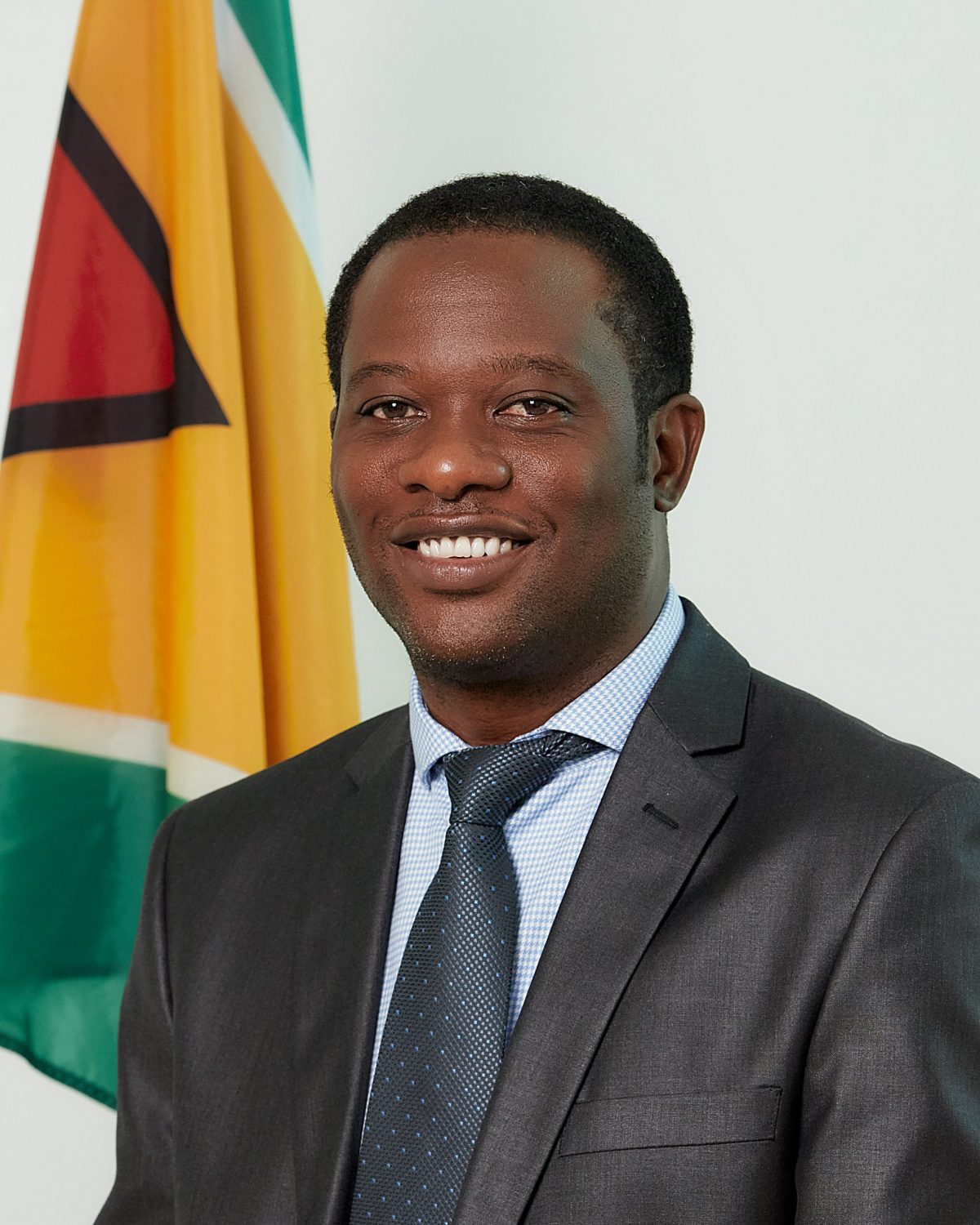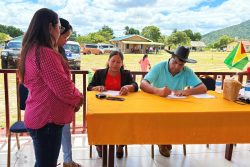The Samoa Agreement could be signed by Guyana’s Ambassador to the European Union Sasenarine Singh who leaves for Brussels next week as the Small Island Developing States (SIDS) meeting did not afford the opportunity for it to be signed there, Minister of Foreign Affairs Hugh Todd said.
“No, it could not be signed there because there wasn’t an opportunity. We are due to have an ambassador posted to Brussels shortly… where the new ambassador can sign,” Todd told the Stabroek News when contacted yesterday for an update. He explained that the ambassador can sign on behalf of the government and he expects that is what might happen.
The Minister of Foreign Affairs had last month told this newspaper, “We will sign at the next available opportunity, possibly in Samoa later this year or in Antigua later this month [at the 4th International Conference on Small Island Developing States].”
He said yesterday, “I doubt it would be until November in Samoa”.
Seventy-one of 79 African, Caribbean and Pacific countries are said to have already signed the pact. Guyana signalled to the European Union (EU) that it was ready to sign, but has to wait for the EU to say when would be the most convenient time for signing.
“It is not a question for Guyana to answer on which date is available. We just have to ensure that our signatory has full powers, when the EU calls on us, and is ready,” an official of the Foreign Ministry had explained. “If the EU will have the documents in Antigua or Samoa, they will say and we will send a representative that has full powers to sign…,” the source added.
Todd had told this newspaper in February that having gotten the clarity it sought on areas of concern, Guyana was ready to sign on to the Samoa Agreement which is the successor to the Cotonou Agreement, that the Organisation of African, Caribbean and Pacific States (OACPS) has with the EU and which is the overarching framework for relations with the EU and its member countries.
“We have been able to, the technical teams that is, sort out the [areas of concern] of the agreement. We had a few areas to clarify. So the technical teams have worked that out already for us… and definitely we would be signing,” he had said. “The technical officials had been engaging on the areas we would have flagged for our interests. They have worked that out,” he added.
No changes
Of note is that there are no changes to the agreement tailored for Guyana.
The absence of Guyana’s signature had raised concerns at various levels in Georgetown. On November 15, 2023, the EU and its member states signed the new partnership agreement in the Polynesian island country of Samoa. Guyana withheld signing on because of what it said were a number of concerns. One source had told this newspaper that Guyana was trying to get an “interpretative statement to show Guyana’s position” before signing. It is unclear if these matters were raised in the several years of negotiations that preceded the signing in November last year.
A source had said that Guyana is not a signatory to the United Nations Convention Relating to the Status of Refugees, and it believes that part of the Samoa Agreement has clauses which reference this. “It has all sorts of obligations. Clause 76 speaks to the treatment of migrants… and that has been an argument,” that source had stated.
With around 30,000 to 40,000 Venezuelans having arrived here over the last seven to eight years, the government had concerns about a possible impact in this area.
“Article 13 of the Cotonou Agreement provides for dialogue and cooperation in the matters of both legal and illegal migration, including return and readmission, but does not clearly provide for enforcement and sanctions,” according to the European Parliament.
“Title VI of the future OACPS-EU agreement (Samoa) will go far beyond Cotonou in this matter. This title provides for a comprehensive, coherent, pragmatic and balanced approach, in full respect of international law, including international human rights law and, when applicable, international refugee law and international humanitarian law, but does not explicitly mention the UN Global Compacts on migration and on refugees,” a briefing from the EU Parliamentary Research Service stated.
“The parties commit to fair treatment and non-discrimination of legal migrants and ‘shall pursue efforts to adopt effective integration policies’ towards them (Article 64). The negotiated agreement mentions cooperation to reduce the transaction costs of remittances, the need to facilitate circular migration, and the ‘relevance’ of South-South migration, but is not very detailed in this regard. The Africa protocol, title VI, includes further commitments on facilitating legal migration and mobility, encouraging diaspora investment and remittances, and supporting intra-African cooperation on migration,” it added.
The Cotonou Agreement was due to expire on 29 February 2020, but it was extended temporarily to no later than 31 October 2023, pending adoption of a new agreement.
“The multiple negotiation levels, the coronavirus crisis, and difficulties in reaching agreement on sensitive issues, such as migration management and sexual and reproductive health and rights, prevented the new agreement from being finalised by the initial expiry date set in the Cotonou Agreement,” the EU Parliament said on its website.
“… The Samoa Agreement is based on six key priorities: human rights, democracy and governance; peace and security; human and social development; inclusive, sustainable economic growth and development; environmental sustainability and climate change; and migration and mobility. The EU and the OACPS agreed on the principle of a common foundation complemented by three regional protocols for African, Caribbean, and Pacific OACPS members respectively,” it added.
On 15 November 2023 the partnership between the EU and its 27 member states, and the 79 member states of the OACPS was solidified with the signing of the Samoa Agreement in Apia, Samoa. The historic signing ceremony, a first to be held in the Pacific, was attended by more than 250 delegates from across the four continents.








